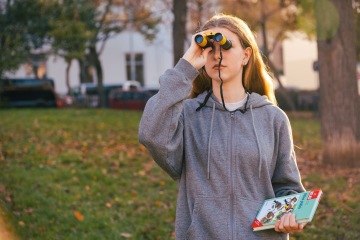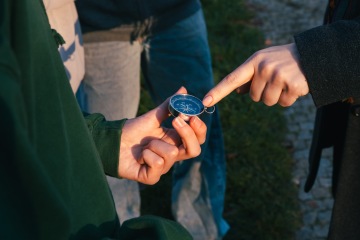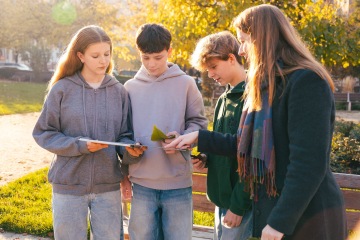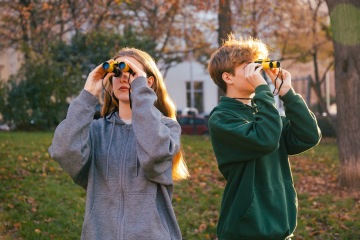Outdoor Project Days: Learning by Exploring the World
9 months ago
Outdoor learning allows students to become explorers as they actively seek out answers and connect their study material to the real world. They’re not just passive recipients of information as they actively explore their surroundings and learn through their own experience.
It's not just something to liven up the school day, but also a vital method for making learning more meaningful. Pupils engage multiple senses as they experiment and use observation to find their answers. This approach, which is known as place-based education, uses the surrounding environment as the primary resource for learning about natural, historical or social contexts.
During outdoor project days, for example, students observe birds gathering on the ledges of buildings before flying south. Using atlases, they identify non-overwintering species and use a compass to find the direction south. This project helps them make deeper connections between theory and practice – not only will they retain information about bird migration, they’ll also link it to their own experiences.
Actively involving students means that they’re participating in their own learning. Hands-on experience provides a real context for study materials, fosters a natural desire to explore, and improves concentration and retention.
We believe that outdoor learning will allow children to become active explorers who aren’t just learning aboutthe world, but also learning through it. This type of learning brings joy, interest and sometimes even a touch of adventure!




